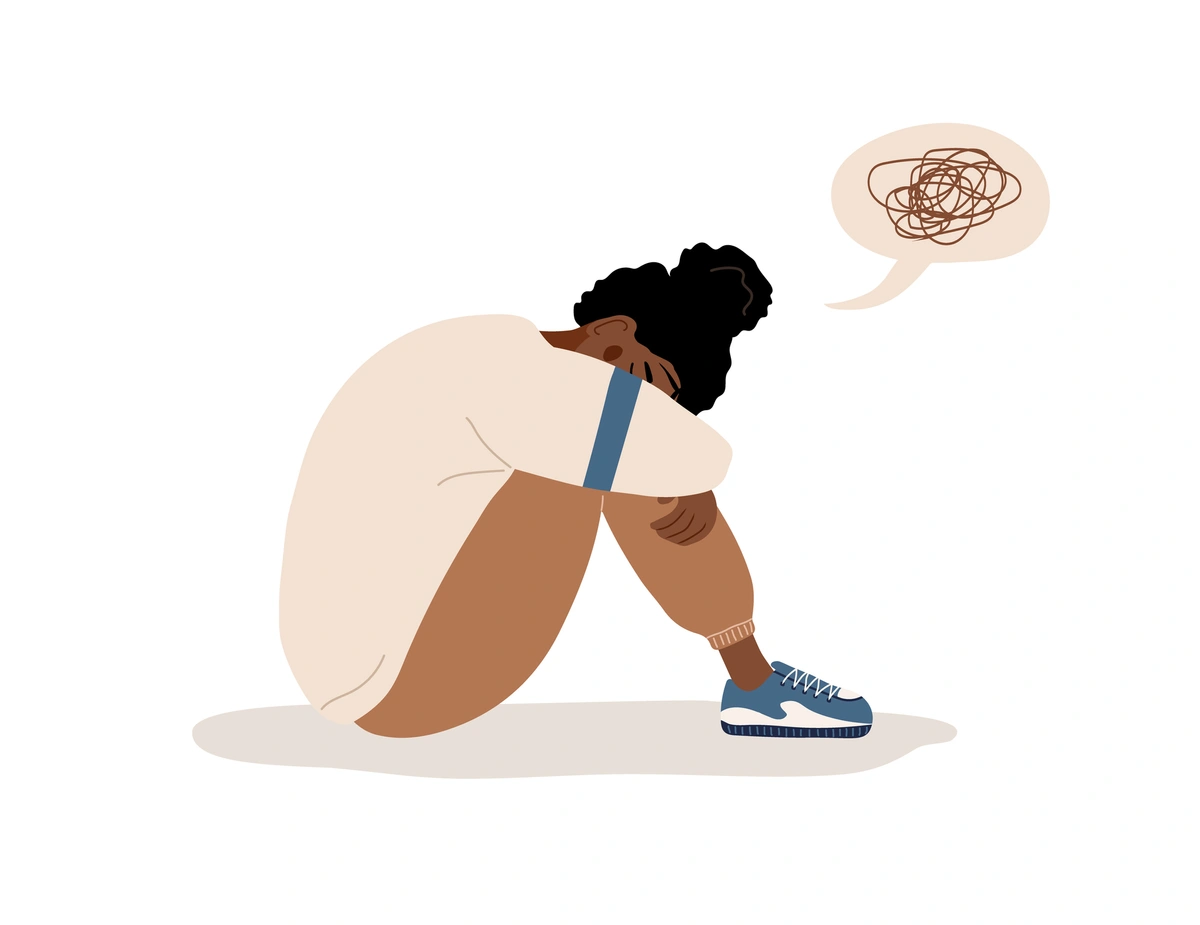Consequences of Untreated Mental Illness

Consequences of Untreated Mental Illness
Understanding the effects.
April 11, 2024 | Dr. Joel L. Young
Although mental illness remains heavily stigmatized, with politicians blaming everything from poverty to crime on mental disorders, mental illness is common. About 25% of the population will face a mental health issue in any given year. With more than half of all mental illnesses left totally untreated, millions of Americans needlessly suffer with unnecessary symptoms.
Stigma, shame, embarrassment, and poverty can all play a role in the decision not to seek treatment, as well as the inability to find quality care and counseling. Many individuals struggling with mental health issues are unable to find a therapist they like, or deal with intolerable side effects associated with the medications they take.
But giving up, rather than trying a new strategy, is extremely risky, and could cost you your health, happiness, and even your life.
Here's what happens when mental illness is left untreated.
Worsening mental health problems
The most obvious effect of untreated mental illness is a steady—and often rapid—decline in mental health. Mental illness will not go away on its own, and the longer it persists, the harder it is to treat.
People with depression, for example, might only experience a handful of symptoms at first. They often even ask themselves: ‘do I have depression?’ Left untreated, individuals may begin to experience the full range of depression symptoms, requiring more intensive treatment and a more uncertain recovery time.
Unexplained aches and pains
When mental illness becomes too challenging to deal with, sometimes the body bears some of the burden. You might involuntarily tense your muscles, or clench your jaw, leading to headaches and muscle strain.
It's common for people with underlying mental health problems to complain of aches and pains that have no physical source. But over time, these aches and pains can turn into significant health problems. If you tense your shoulder in response to stress, for example, you might eventually develop a painful or debilitating shoulder injury that worsens both your physical and mental health.
Chronic physical health problems
Mental illness is not all in your head. It's the product of brain chemistry changes. Mental illness can undermine your physical health in at least two ways.
First, chronic mental health issues may cause you to neglect your health, as when a diabetic is too depressed to monitor their blood sugar levels.
Second, mental illness can cause health problems all on its own. Chronic stress is associated with a risk of heart attacks, stroke, obesity, and premature death, and many other symptoms associated with mental illness can also lead to serious health issues.
Homelessness and job stability issues
Signs and symptoms of mental illness make it difficult to cope with the demands of daily life. Whether it's struggling to get out of bed for work because of depression, or experiencing communication difficulties due to schizophrenia, the longer mental illness is left untreated, the more likely it is to interfere with your ability to function properly and effectively interact with others. This can lead to financial troubles, job loss, and potentially even homelessness.
All of these challenges, of course, can further complicate your mental illness, making it increasingly difficult to pull yourself out of a challenging situation. More than a third of homeless people in the U.S. have a serious mental illness.
Incarceration
First, it's important to clear up a myth: Mental illness does not cause violence. It does, however, make it more difficult to conform to society's norms. For instance, a woman with PTSD pulled over by the police may enter a flashback, causing her to behave in an apparently non-compliant manner. A man with depression may feel so sad that he's unable to muster the energy to pay a traffic ticket, eventually leading to the issuance of a warrant.
73% percent of female state prison inmates, and 55% of men, have a serious mental illness.
Victimization and trauma
When your brain undermines your ability to react, feel happy, or think clearly, you're more vulnerable to victimization. This can set off a chain reaction of victimization, followed by unusual behavior that leads to even more victimization. People with mental illnesses are significantly more likely to be victimized than those without.
Suicide
Mental illness isn't a lack of coping skills or a personal failure. It's a serious, and potentially life-threatening, illness. Left untreated, mental illness can make life unbearable—and cloud your judgment so thoroughly—that you see no way out and no hope. Life with mental illness is hard, and for some, it's intolerable. More than 90% of suicides are directly attributable to untreated mental illness.
If you or someone close to you is struggling with untreated mental health issues, consider seeking help; you won't regret it.
References
- About 50% of individuals with severe psychiatric disorders (3.5 million people) are receiving no treatment. (n.d.).
- Mental Disorders in America. (n.d.).
- Varney, S. (2014, May 25). By the Numbers: Mental Illness Behind Bars.
- What percentage of individuals with serious mental illnesses are receiving no treatment? (2014, November).
Ready to boost your practice?
Try 3 complimentary assessments on us.